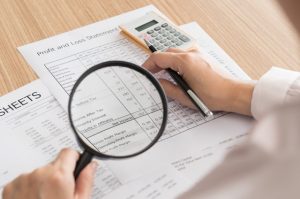As the economic fallout from COVID-19 has engulfed the nation, commercial property owners are looking for any kind of relief they can find as their tenants ask for help with rent.
One kind of relief that landlords might miss are property tax disaster relief claims, which allows owners to lower and even defer their property tax payments, says Douglas Mo, of counsel at Eversheds Sutherland.
"The building owners would be getting a reduction in the value of their taxable property," Mo says. "Typically, the reduction occurs the day of or the day after the calamity. In normal property tax, it usually runs on an annual cycle."
Without this disaster reprieve, Mo says many taxing authorities wouldn't make the tax relief effective until July 1, 2021. "That means that you have to wait 16 months for relief if you were affected in March," Mo says.
If a building owner receives this reduction, they will get relief starting on the date of the calamity. "Each state has a different measurement date and a different fiscal year," Mo says. "The whole goal of it is you get relief right away rather than waiting until the next measurement date."
Right now, at least 11 states have some sort of valuation relief or tax deferral related to a disaster.
"It's very state-dependent," Mo says. "Each state has its own particular set of laws regarding disaster relief. Some have pretty explicit provisions regarding disaster relief, and others don't have any disaster relief at all."
Mo advises property owners to understand the statutory scheme of their particular state. "Then, your claim has to be well-documented in terms of what kind of damage you've incurred," he says. "In California, they have a standard of restricted access in the statute. That is the criteria. If you satisfy it, you could potentially get relief. For example, if the government orders your business to be shut down, that's typically something that could qualify for restricted access."
If the economic fallout from COVID-19 continues, Mo expects people to file a claim on their January 1, 2021 value.
"If the assessor hasn't captured the full impact of that damage on January 1, 2021, the taxpayer's going to file a claim anyway," Mo says. "We've been telling clients if they're doing a normal appeal anyway, they ought to consider filing a disaster claim. It's going to be relatively similar to their 2021 claim."
Mo has been following businesses that are fighting their insurers for business interruption relief. "It's not the same standards," he says. "I think it's a little more limiting."
For instance, many business interruption policies require physical damage. "They may not have the same sort of interpretation of the phrase 'physical damage' as would apply in property tax," Mo says. "It's not exactly parallel. When you look at the complaints that have been filed, a number of them deal with the physical damage requirement and do allege that COVID-19 results in physical damage."
Want to continue reading?
Become a Free ALM Digital Reader.
Once you are an ALM Digital Member, you’ll receive:
- Breaking commercial real estate news and analysis, on-site and via our newsletters and custom alerts
- Educational webcasts, white papers, and ebooks from industry thought leaders
- Critical coverage of the property casualty insurance and financial advisory markets on our other ALM sites, PropertyCasualty360 and ThinkAdvisor
Already have an account? Sign In Now
*May exclude premium content© 2025 ALM Global, LLC, All Rights Reserved. Request academic re-use from www.copyright.com. All other uses, submit a request to [email protected]. For more information visit Asset & Logo Licensing.









